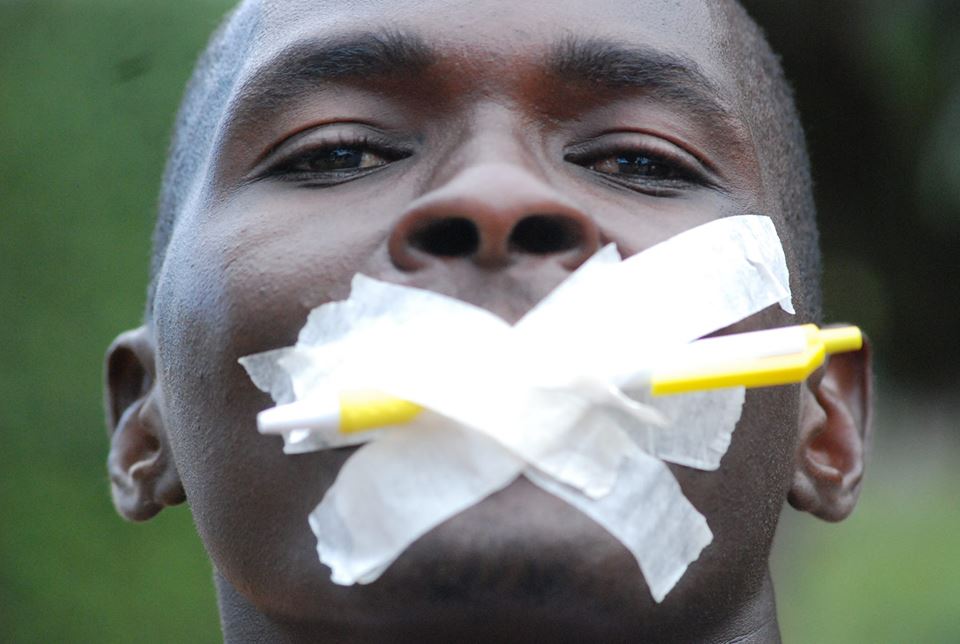My last two meetings with Arinaitwe Rugyendo – one of the founders of the Red Pepper Publications involved urging him (for a journalistic fellowship that he eventually was too busy to apply for) to offer a defense of the tabloid as a form of contemporary Ugandan journalism.
Indeed, defend the quintessential test of the proverbial “freedom of speech” promise that we mostly take for granted. I learned some things about Arinaitwe, who is part of a lesser known society of Catholic press men and women.
We both, for example, had a connection to the late Bishop Barnabas Rwigwizagonga Halem’Imana. The late Bishop was a fierce devotee of the Church as well as a pragmatic and empathetic observer of society.
I noticed that despite the notoriety of the Red Pepper, Rugyendo was pretty circumspect about many moral topics. He was more comfortable taking on the role of inquisitor for much of our coffee meeting.

In the mid-morning shade of the courtyard sitting outside Java House coffee at the Village Mall in Bugolobi – he had the air of an entrepreneur not so much a man of letters about him.
Many people walked up to him to say hullo (just one of them was a journalist turned PR practitioner). The rest appeared to be the well-to-do elite that form the exhibitionist mafia at malls such as that – performing some pre-arranged act of what social progress looks like if one has made it through with the trendy clothes, watches, phones, food and yes, the company one consumes.
Rugyendo I recall was sharp in his criticism of the government and its failings. He however saw his real role as a confessor of the hypocrisy of the Ugandan man and woman. I was hoping that journalistically speaking he could throw such a role into a guided conversation about the role tabloids played in advancing freedom of speech in Africa.
In Uganda since the mid 1990s this appeared to me to be the case. Despite an official attack on the prudishness of Uganda’s post-independence urban generation through the political openness of the Museveni government on HIV and health issues, no institution has been as aggressive on rolling back the moral mores of the society than the tabloid.
They have been bested today only by social media which as occupied the extremes of free speech where once the tabloid stood as god. ( and goddess, internet queens of free speech today include agony aunt and political activist Stella Nyanzi of Makerere University)
The difference between the two, the tabloid like the Red Pepper, and social media is that the latter represents a personalized and more democratized form of free expression.
This is important because in the case of free speech – it is the tabloid, published by an organization (such as a newspaper) that often acts to defend the right to free speech, especially when it is under attack, a task that is a lot more difficult for self-publishers on social media.
Newspaper tabloids are already part of the community of publishing houses with established places in the stable of the so-called fourth estate.
Indeed, it is even more difficult for this reason for social media in general to defend the right to free speech since when it is attacked – the business assaulted is that of mobile phone/internet companies whose core business is not publishing. Newspapers have been in the dock for this alone for some time in Uganda even though their position is less tenable today with the changing publishing landscape being wrought by information technology.
Tabloidization did not start with the Red Pepper of course.
In fact, it was radio – and in particular late-night talk shows in the mid-nineties that moved the needle on what could be discussed publicly by latching on to the bad wagon of health promotion the government was pursuing.
There was a talk show by Peter Ssematimba (now Pastor and NRM politician who run for Mayor of Kampala city) that particularly wound up the conservative society at the time. When Salt n’ Pepper’s song “Let’s Talk About Sex” could not be played at parties (but allowed in low lit discos in town), late night programming could at least whisper it.
Then there was the phenomenon of the Monitor Publications too – which began as a bonafide political tabloid – with some sassy pages included in the weekend (Uncle Money and Caroline Nakazibwe come to my mind).
It went on to occupy a major role in advancing freedom of speech and the free press. Still the Red Pepper went further by throwing away the rule book when it started publishing and daring to offend all and sundry.
This was its power and the main contribution of the publication to the idea of free speech (Caveat: Many journalists working for or on behalf of the organization have been accused of running a racket of scandal extortion and at some point, the publication has been considered the unofficial voice of the intelligence community in the country).
The main point here is that free speech is tested by the ability of society to tolerate and accommodate. This quality being one of the most useful characteristics of particularly democratic leaning societies. In turn, the ability to tolerate is tested by the quality of offence given.
So, in offending us so much – the publication pushed the limits of tolerance not just in social affairs but also in political matters. As a writer at the Monitor Publications we acknowledged in many cases that “only the Red Pepper” could report some politically toxic material than ourselves so much so that there was a mythology created about who owned the Red Pepper – because, why would it get away with so much (offence)?
(Caveat: Many journalists working for or on behalf of the organization have been accused of running a racket of scandal extortion and at some point, the publication has been considered the unofficial voice of the intelligence community in the country).
But at the core, Uganda’s conservative society was tested every day and some of its core beliefs mocked and prodded. In response Ugandan society has debated some uncomfortable topics from homosexuality to privacy and corruption. Wherever it was hidden, tabloids put a spotlight on it.
Such was the kind of thinking I pitched to Rugyendo.
He is now an inmate in Luzira Maximum Security Prison for publishing offences that the government argues endangered national security.
As it turns out – this question of what constitutes “national security” is one of the last remaining Ugandan mores that would do with some open debate.
As I understand it an editorial line taken by the Red Pepper on Ugandan-Rwandan relations has been deemed as harmful propaganda. I may have missed something along the way but perhaps in the course of the hearing there will be some evidence on how these insinuations (since then repeated elsewhere) are harming national security.
It is not uncommon in Uganda and elsewhere to cite “security” as a measure of the weight of an issue often simultaneously disinviting the public from discussing it. I remember over 10 years ago when I urged discussion on Uganda’s oil agreements that I ( and others) were turned away because oil was a “national security” issue.
It turned out that greater security lay in transparency and credibility built within the spot-light by managing natural resources prudently. Many Ugandans would not be bothered today because within the decade this “national security” issue was been unmasked, debated, legislated on and reduced to yet another line of government income to which the administration is accountable.
It was also within that decade that evidence emerged that national security ( had it persisted) was probably cover for greedy politicians to do personal deals with the resource.
The use of “security” and with it the anonymization of decisions that involve often involve the removal of personal liberties and protection of due process is also rife. On the street illegal actions by individuals as simple as bad driving and assault are excused because “so and so is with security”.
It is related to the other guy “orders from above” that provides cover for bad decisions and failure especially by law enforcement to take proper responsibility for positions taken in the public interest.
Either way the Ugandan tabloid and those who have served in it have played a positive role in putting our tolerance of others (and ourselves) to the test and in this way served the very ideals of a democratic society.
If you think otherwise – imagine the alternative.
(photo credit. Observer Uganda)










